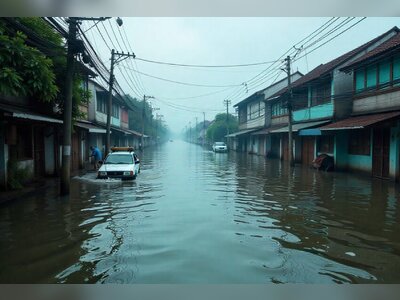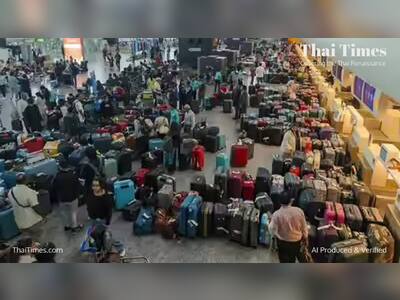0:00
0:00
Thai Hotel Sector Calls for Regulation of Short-Term Rentals
Industry leaders seek stricter enforcement against unlicensed accommodations and foreign ownership concerns
Thailand’s hotel industry is urging the government to tighten regulations on unlicensed short-term rentals, citing unfair competition and security concerns.
The Thai Hotels Association (THA) has called for mandatory registration and stricter enforcement of the Hotel Act of 2004, which requires properties offering daily rentals to be legally licensed as hotels.
The concern centers on condominium units rented out through platforms like Airbnb, particularly properties owned by foreign investors.
Industry leaders argue that these so-called 'zero-dollar condos'—units purchased in bulk and used exclusively for short-term rentals—are undercutting the regulated hotel sector.
The THA claims this practice is not only affecting business for licensed hotels but also contributing to security risks, as many of these rentals do not comply with the legal requirement to report foreign guests to immigration authorities within 24 hours.
THA President Thienprasit Chaiyaphatranan has called for an outright ban on daily rentals in condominiums and housing estates.
He also urged the government to close legal loopholes that allow these rentals to continue operating, advocating for stronger enforcement measures, including arrests for violations.
Another major concern raised by the THA is the government’s proposal to increase foreign ownership limits in condominiums from 49 percent to 75 percent.
The association warns that such a move could lead to increased speculative buying, worsening affordability for Thai residents.
There are also concerns over excessive foreign ownership of villas in key tourist destinations such as Phuket.
Thirayuth Chirathivat, CEO of Centara Hotels & Resorts, has also voiced opposition to unregulated short-term rentals, describing them as an 'unfair business practice' that places hotels at a disadvantage due to differences in licensing and tax obligations.
He has urged the government to take decisive action to address the issue.
The THA has emphasized that regulatory changes should focus on attracting 'quality tourists'—those who contribute to the local economy by dining in Thai restaurants and spending within the country.
The call for reform comes as Thailand's tourism industry continues its post-pandemic recovery, with increasing numbers of independent travelers replacing large tour groups from key markets such as China.
The Thai Hotels Association (THA) has called for mandatory registration and stricter enforcement of the Hotel Act of 2004, which requires properties offering daily rentals to be legally licensed as hotels.
The concern centers on condominium units rented out through platforms like Airbnb, particularly properties owned by foreign investors.
Industry leaders argue that these so-called 'zero-dollar condos'—units purchased in bulk and used exclusively for short-term rentals—are undercutting the regulated hotel sector.
The THA claims this practice is not only affecting business for licensed hotels but also contributing to security risks, as many of these rentals do not comply with the legal requirement to report foreign guests to immigration authorities within 24 hours.
THA President Thienprasit Chaiyaphatranan has called for an outright ban on daily rentals in condominiums and housing estates.
He also urged the government to close legal loopholes that allow these rentals to continue operating, advocating for stronger enforcement measures, including arrests for violations.
Another major concern raised by the THA is the government’s proposal to increase foreign ownership limits in condominiums from 49 percent to 75 percent.
The association warns that such a move could lead to increased speculative buying, worsening affordability for Thai residents.
There are also concerns over excessive foreign ownership of villas in key tourist destinations such as Phuket.
Thirayuth Chirathivat, CEO of Centara Hotels & Resorts, has also voiced opposition to unregulated short-term rentals, describing them as an 'unfair business practice' that places hotels at a disadvantage due to differences in licensing and tax obligations.
He has urged the government to take decisive action to address the issue.
The THA has emphasized that regulatory changes should focus on attracting 'quality tourists'—those who contribute to the local economy by dining in Thai restaurants and spending within the country.
The call for reform comes as Thailand's tourism industry continues its post-pandemic recovery, with increasing numbers of independent travelers replacing large tour groups from key markets such as China.











